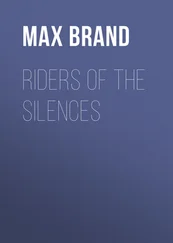Patrick White - Riders in the Chariot
Здесь есть возможность читать онлайн «Patrick White - Riders in the Chariot» весь текст электронной книги совершенно бесплатно (целиком полную версию без сокращений). В некоторых случаях можно слушать аудио, скачать через торрент в формате fb2 и присутствует краткое содержание. Год выпуска: 1961, Издательство: Spottiswoode, Жанр: Современная проза, на английском языке. Описание произведения, (предисловие) а так же отзывы посетителей доступны на портале библиотеки ЛибКат.
- Название:Riders in the Chariot
- Автор:
- Издательство:Spottiswoode
- Жанр:
- Год:1961
- ISBN:нет данных
- Рейтинг книги:4 / 5. Голосов: 1
-
Избранное:Добавить в избранное
- Отзывы:
-
Ваша оценка:
- 80
- 1
- 2
- 3
- 4
- 5
Riders in the Chariot: краткое содержание, описание и аннотация
Предлагаем к чтению аннотацию, описание, краткое содержание или предисловие (зависит от того, что написал сам автор книги «Riders in the Chariot»). Если вы не нашли необходимую информацию о книге — напишите в комментариях, мы постараемся отыскать её.
is one of the Nobel Prize winner's boldest books.
Riders in the Chariot — читать онлайн бесплатно полную книгу (весь текст) целиком
Ниже представлен текст книги, разбитый по страницам. Система сохранения места последней прочитанной страницы, позволяет с удобством читать онлайн бесплатно книгу «Riders in the Chariot», без необходимости каждый раз заново искать на чём Вы остановились. Поставьте закладку, и сможете в любой момент перейти на страницу, на которой закончили чтение.
Интервал:
Закладка:
13
BECAUSE the telephone is the darkest, the most sepulchral oracle of all, Mrs Flack would stalk around that instrument for quite a while before she was persuaded to accept the summons. Although a considerable pythoness herself, it might have been that she felt the need for invocation before encounter with superior powers. Or was it, simply, that she feared to hear the voice of doom addressing her personally? Either way, she would at last be heard. "Oh? Ah? Yairs. No no! _Yairs__! Perhaps. Who can tell? I will have to think it over and give you an answer. Well, now! Those who know, need not ask." As she parried with a shield of wooden words, it would begin to appear as though she had mislaid her matchless sword, and the armour of disbelief, with which she had been careful to gird herself, had turned audibly to buckram. Mrs Jolley, who enjoyed the gift of being able to overhear without actually listening, had even known her friend reply, "You cannot expect me to be wise to everythink. Can you, now?" It made Mrs Jolley wonder, but she continued to immerse the dishes, which was one of the duties she performed in return for friendship and a very small remuneration. Mrs Jolley soon learned that, of all the telephone voices, there was perhaps only one to which Mrs Flack could genuinely respond. On such occasions the true glue of prophecy would be poured back, into the funnel of the telephone, onto the missing questions. Mrs Jolley could tell that her friend's rather dry and freckled hands were moulding the warm Bakélite into an altogether different shape. Mrs Jolley would hear: "If you was so foolish as to leave off your singlet as well, then what can you expect? Oh, dear, dear! I would advise you to rub your chest before retiring, and see as the blanket is pulled right up, and sweat it out with a couple of aspro, and a drop of somethink. It is you who must answer for your own health, whoever else is willin' to." On one occasion Mrs Jolley heard: "I do not expect feelin's where feelin's do not exist. But expect them to be respected where they do. Eh? No, you do not understand. You do not understand. No one understands no more, unless it is put in American." When her friend returned to the kitchen, Mrs Jolley could not resist, "Ah, dear, some people are terrible." But Mrs Flack did not appear to hear. "Some young fellers," Mrs Jolley ventured further, "are all for themselves nowadays." Mrs Flack had risen to the surface, but her thoughts were floating after her. "That nephew of yours is giving you a lot of trouble," said Mrs Jolley and chipped a plate on the tap. "There is no trouble," replied Mrs Flack, "where a person's life is his own." "Oh, no, where a person's life is his own." Mrs Jolley sighed. She did wonder where. There was the morning-it was the Thursday of Easter, Mrs Jolley would remember-the telephone had rung that sharp, she broke the little butter-dish with the gum-nuts on it, which she hid behind the dresser to dispose of when convenient. Mrs Flack answered, as usual, but only after bells had begun to ring at every end of a lady's nerves. Mrs Jolley heard: "Waddaya know! I would never ever! Golly, I am pleased, Blue! But watch out now, won't you? I am telling you people will act different. People, when they get a smell of someone else's luck, are very, very different. People, at the best of times, are different underneath their clothes. Eh? You know, Blue, I did not suggest. You will never ever find me descending to anything low-thoughts or talk-never low. Because there is so much that is far from nice. Which reminds me, Blue, someone that we know of was visiting last night, so I am told, by lantern-light, a certain person. Yairs, dear. Forgetting, it would seem, the time of year. It was _them__ that crucified Our Saviour. Tomorrow. Think of it. Tomorrow! Yet, someone that we know of must _consort__-to put it blunt. Eh? Blue! Blue! I forbid you! Who am I–I would like to know-that you are talking to? Where are you, Blue? I can only think you must be full. In the one across from work? A fat lot of work you'll do this morning, Blue, and what odds!" Here Mrs Flack laughed like a motor-bike. "I do not blame you, neither. It is only right that young people in full possession of their health should take their pleasure. And if they come to grief, well, it is the parents will wear the scars. It is not the children on who the sins. Oh, dear, no! Whatever else. Do not think I am bitter, as has sometimes been suggested. I am not. I am realistic, that is all, and must bear the consequences of seeing things as they really are. And suffer every Easter to know the Jews have crucified Our Lord. Again. Blue? Something that the young do not need to understand. Not while they have their lovely bodies. Eh? Blue? Enjoy, boy, enjoy, then! Bust your skin open, if that is what you want! It is only a game to let the blood run when there is plenty of it. And so red. Nothing is cruel if you don't see it that way. Besides, it lets the bad out, too, and I would be the last to deny there is plenty of that waiting to turn to pus in anybody's veins. "Eh? Blue?" Mrs Flack was calling, it could have been in joy, or desperation. When she entered the kitchen she was glittering dreadfully. Mrs Jolley, who had been excited, puzzled, frightened by all that she had overheard, decided to continue looking at the sink. "Blue," gasped Mrs Flack, "and six workmates"-here she sat hard upon an upright chair-"has gone and won the Lottery. They called the ticket 'Lucky Sevens.' " Mrs Jolley was looking at the sink, of which the grey water, suddenly so flat and still, continued to conceal a variety of objects. "You are not pleased," Mrs Flack only dreamily accused. In her entranced state she did not need to glance. Mrs Jolley would be without her shine. She would be wearing the grey look of mornings of dish-water. It was normal for her now to leave her teeth whole days in the tumbler, beneath the handkerchief, beside her bed. "Some people," said Mrs Flack, "do not like to hear the good." Mrs Jolley stroked the water. "I was only thinking," said Mrs Jolley. She was not all that grey. "I was thinking of his poor mother," she said. Nor was she reproachful, only sympathetic. "What was the name," she asked, "of your sister, Mrs Flack, that passed on?" Mrs Flack grew dreamier. "Eh?" she said. "My sister. My sister Daisy. Daisy," she said. "I was thinking," said Mrs Jolley, "it will be lovely for your sister to know as her boy has struck lucky." Usually when others expressed suitable sentiments, Mrs Flack would be at a loss how to bridge the gap. If she were unable to prevent the moment occurring, she would find herself, as now, squinting down her front into-nothing. On that most brilliant of mornings Mrs Jolley had elected for darkness. Her friend suspected she might even be concealing some long-range plan for breaking open safes, and thieving old letters and deeds. So Mrs Flack arranged her spotless front, and waited. "I bet your hubby, too, was fond of such a sturdy boy. As much an uncle as you an aunt." "Will?" Mrs Flack answered from very far. "Will died when Blue was still a little kiddy." Mrs Jolley sucked her gums. "It was not my intention," she said, "to bring it up. And such a dreadful end." But Mrs Flack could not in every way agree; death is so practical. "I will not deny," she said, "that the manner of it was unexpected, Will being so well thought of in the trade, so well remunerated, a first-class tiler. But it is not the manner of it, Mrs Jolley, that matters-whether a man slips off the roof, or snuffs out in 'is own lounge-room, in an easy chair. The end, why, the _end__ is the same." Mrs Jolley began to see plainly there might be no escaping from out of that cube of kitchen. "Well," she cried, "are we a pair of crows!" "It was not me that chose to enter into morbid speculation," said Mrs Flack, loftier. Mrs Jolley struck the surface of the water with her hand. "And on such a day!" she shrieked, looking at the clock. "I bet that nephew of yours will be full as a piss-ant by eleven!" "Blue is a good boy," claimed Mrs Flack. "No one ever," conceded Mrs Jolley. "Blue never got into trouble. Or not much." "I do not know what I do not know!" Mrs Jolley laughed. "Blue never killed a soul," said Mrs Flack. "Who killed who?" asked Mrs Jolley, her neck turning on a steel spring. "It happens every day. A person has only to read the papers." "You cannot take the papers for true." "Only a person can know the truth, and then not always." There the two ladies were caught up in the morning. Their actions were no longer their own because severed from their bodies by thought and light.
Читать дальшеИнтервал:
Закладка:
Похожие книги на «Riders in the Chariot»
Представляем Вашему вниманию похожие книги на «Riders in the Chariot» списком для выбора. Мы отобрали схожую по названию и смыслу литературу в надежде предоставить читателям больше вариантов отыскать новые, интересные, ещё непрочитанные произведения.
Обсуждение, отзывы о книге «Riders in the Chariot» и просто собственные мнения читателей. Оставьте ваши комментарии, напишите, что Вы думаете о произведении, его смысле или главных героях. Укажите что конкретно понравилось, а что нет, и почему Вы так считаете.












